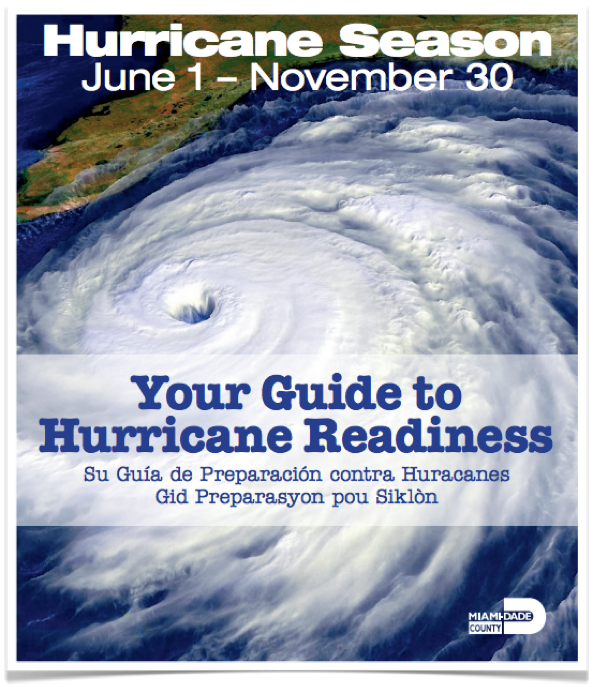
How ready are you for a hurricane?
For those of us who have lived in Miami for years, the idea of an approaching hurricane can be exhausting. I think people fall in one of a few categories:
- The overachiever or HURRICATIONIST: ready with hurricane prevention everything before the season even starts. They have extra batteries and water, special radio allocated for hurricane related news, numbered shutters, extra gasoline, tests generator every 3 months all year-long …. you get the idea.
- The hurricane alarmist – the one that calls everyone and their mother at the sign of the first red spot on the Atlantic Ocean to make sure they are ready. They will usually start making everyone go get supplies and start putting shutters up when the media first mentions the word “storm.”
- The hurricane pragmatic – we love hurricane pragmatics. They are sensible and realistic. They get supplies without alarm, they offer their help to neighbors and seem to have a third sense about the reality of a hurricane approaching or not.
- The hurricane questioner – this is the person that keeps asking, should we prepare? should we secure things? what if Publix is packed? What if there’s a line at the gas station?
- The hurricane opportunist – this is the one that decides to take a vacation at every mention of a hurricane approaching. Why make your life miserable by worrying? Just leave and avoid the mess.
- The hurricane wishy-washy – you know who you are – you put up partial shutters, fill up only one car with gas, buy a couple of gallons of water and keep telling yourself that it will not come your way. (It has worked for you for years, why change now?)
- The hurricane second handed – this is the person who has a loved one that will make all of the hurricane decisions. They will not even watch the news and leave the worrying to someone else. They will help if asked, but will not contribute any opinion to the cause.
- The hurricane last minuter – the one that makes the world go on anxiety medication because they decide to secure the property when hurricane winds have already started.
If I missed a category, please let me know, we can at least find humor in the hurricane preparation process that we go through on a regular basis. Get this week’s local market conditions
Hurricane Recommendations
On a serious note, Miami-Dade gives these recommendations:
Hurricanes are severe tropical storms that form in the southern Atlantic Ocean, Caribbean Sea, Gulf of Mexico, and in the eastern Pacific Ocean. Scientists can now predict hurricanes, but people who live in coastal communities should plan what they will do if they are told to evacuate.
Prepare for Hurricanes
Plan to Evacuate
Stay Informed
Related Links
